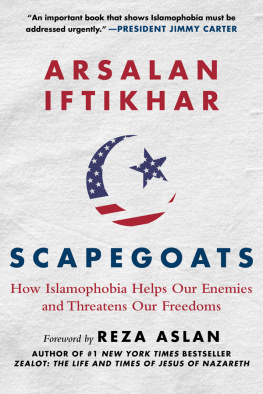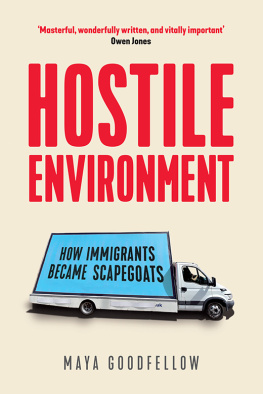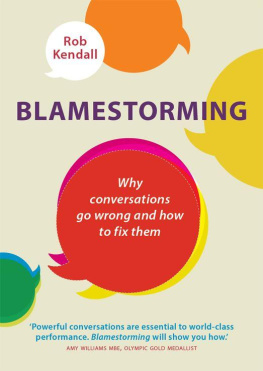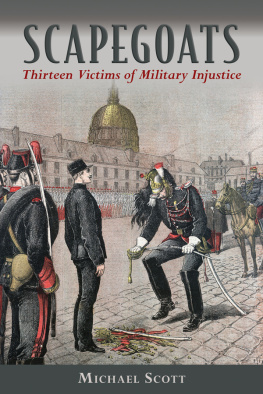

First published in Great Britain in 2015 by
Policy Press University of Bristol 1-9 Old Park Hill Bristol BS2 8BB UK Tel +44 (0)117 954 5940 e-mail
North American office: Policy Press c/o The University of Chicago Press 1427 East 60th Street Chicago, IL 60637, USA t: +1 773 702 7700 f: +1 773-702-9756
Policy Press 2015
British Library Cataloguing in Publication Data
A catalogue record for this book is available from the British Library
Library of Congress Cataloging-in-Publication Data
A catalog record for this book has been requested
ISBN 978-1-44730-500-2 hardcover
ISBN 978-1-4473-2116-3 ePub
ISBN 978-1-4473-2117-0 Mobi
The right of Gavin Dingwall and Tim Hillier to be identified as authors of this work has been asserted by them in accordance with the Copyright, Designs and Patents Act 1988.
All rights reserved: no part of this publication may be reproduced, stored in a retrieval system, or transmitted in any form or by any means, electronic, mechanical, photocopying, recording, or otherwise without the prior permission of Policy Press.
The statements and opinions contained within this publication are solely those of the authors and not of the University of Bristol or Policy Press. The University of Bristol and Policy Press disclaim responsibility for any injury to persons or property resulting from any material published in this publication.
Policy Press works to counter discrimination on grounds of gender, race, disability, age and sexuality.
Cover design by Qube Design Associates, Bristol
Front cover image: www.istock.com
Readers Guide
This book has been optimised for PDA.
Tables may have been presented to accommodate this devices limitations.
Image presentation is limited by this devices limitations.
Contents
Gavin Dingwall was born and brought up in Edinburgh. He studied law at Warwick and Aberystwyth Universities and lectured at Aberystwyth before moving to De Montfort University in 2005. He is the author of Alcohol and crime (Willan, 2006) and (with Chris Harding) of Diversion in the criminal process (Sweet and Maxwell, 1998). Gavin claims to be an accomplished guitar player. He has also had the misfortune to be witness to some of the worst moments in the history of Hibernian F.C. (and there have been more than a few).
Tim Hillier was born and brought up in Yorkshire. He studied law at the School of Oriental and African Studies and University of Sheffield. During the 1980s he worked for three years as a researcher for a human rights organisation in the West Bank. He moved to Leicester in 1988 and in 2011 became Associate Head of Leicester De Montfort Law School. He has published in the area of international law. Tim has endured the fluctuating fortunes of Leeds United but has been heartened by the recent return to cricketing success of Yorkshire. Five years ago he foolishly took up horseriding.
Blame as a concept informing domestic and international criminal justice has fascinated us for some time. Through our work researching and teaching criminology and penology and our individual interests in criminal law jurisprudence (GD) and international criminal justice (TH) it became evident that a systematic account of the role blame plays in the criminal justice process would constitute an important contribution to contemporary debates surrounding the use of the criminal law and, by implication, of punishment. It is accepted that recourse to the criminal law has become increasingly prevalent over the past 20 years and that notions of blameworthiness have often been employed to justify such intervention. Sometimes criminalisation was obviously necessary and overdue. Other developments, however, do not stand up to scrutiny and appear to be a blunt response to an illusory or over-stated problem. Like many commentators, we are perturbed by a trend to criminalise in the absence of compelling justification. This work will argue that this development is explained in part by a greater willingness to attribute blame for events, to demand that blame is imputed onto an individual or other legal actor, and that severe consequences should then follow. More will be said about definitions in Chapter One, but we employ the modern term blamestorming to describe the deliberate process of attribution. That blamestorming is followed in the books title by blamemongers and scapegoats emphasises the fact that blamestorming is not a value-neutral exercise and that significant disparities in power are often involved.
Blame is used in this work as a prism which affords one way to view contemporary criminal justice policy and practice. We readily acknowledge that blame is not the only ground on which recent policy has been justified. When clear tension exists between blame and alternative explanations or claims, this will be explored further but dictates of space mean that our analysis of other possible accounts could not always be developed as fully as we would have liked.
Another function can be fulfilled by blame: it can be used to explain and it can be used to evaluate. Blaming someone for something may be a process worthy of examination but, because of the potentially adverse consequences of this process, it is imperative to assess whether the process is necessary and the finding and consequences warranted. Just as politicians and the media invoke blame too readily to justify potentially repressive measures, some criminologists are guilty of dismissing all instances of criminalisation as further proof of invidious state control. Both accounts dissolve when exposed to the complexity of contemporary criminal justice. A meaningful assessment has to be more nuanced and context-specific. If this hinders the ability to make broad claims, so be it.
Prior to commencing, we were confident that a book about the centrality of blame in the criminal justice process would be valuable. We were equally aware that writing such a work would be a complex undertaking and we would like to record our thanks to those who originally reviewed the proposal for their valuable suggestions to our initial proposal. Like all projects of this size, the contents and layout evolved as the work progressed new areas cried out for inclusion and this inevitably came at the cost of some topics which we had planned to cover.
Two key decisions were taken at the start. The first was that the book would address both domestic and international criminal justice: any study on blame which failed to consider how society apportions blame for the very worst crimes imaginable would be seriously deficient. Jurisprudence on the topic now exists as does a considerable secondary literature and we have been able to draw on both at various points. Second, the approach would be inter-disciplinary as blame interests those working in a variety of diverse areas of scholarship. One area which required fairly detailed analysis was criminal law theory, despite the book not being a legal study. It can easily be forgotten how dependent the criminal justice process is on the substantive criminal law. Deliberate decisions taken by parliament or the courts set the parameters of the criminal law and therefore determines what conduct can be responded to. Evaluating some crucial legal determinations demonstrated how judges also commonly invoke notions of blame when deciding whether particular forms of conduct should be viewed as criminal. As judicial interpretation influences decisions taken by police and prosecutors, one cannot sensibly divorce criminal law from criminal justice in this context.












